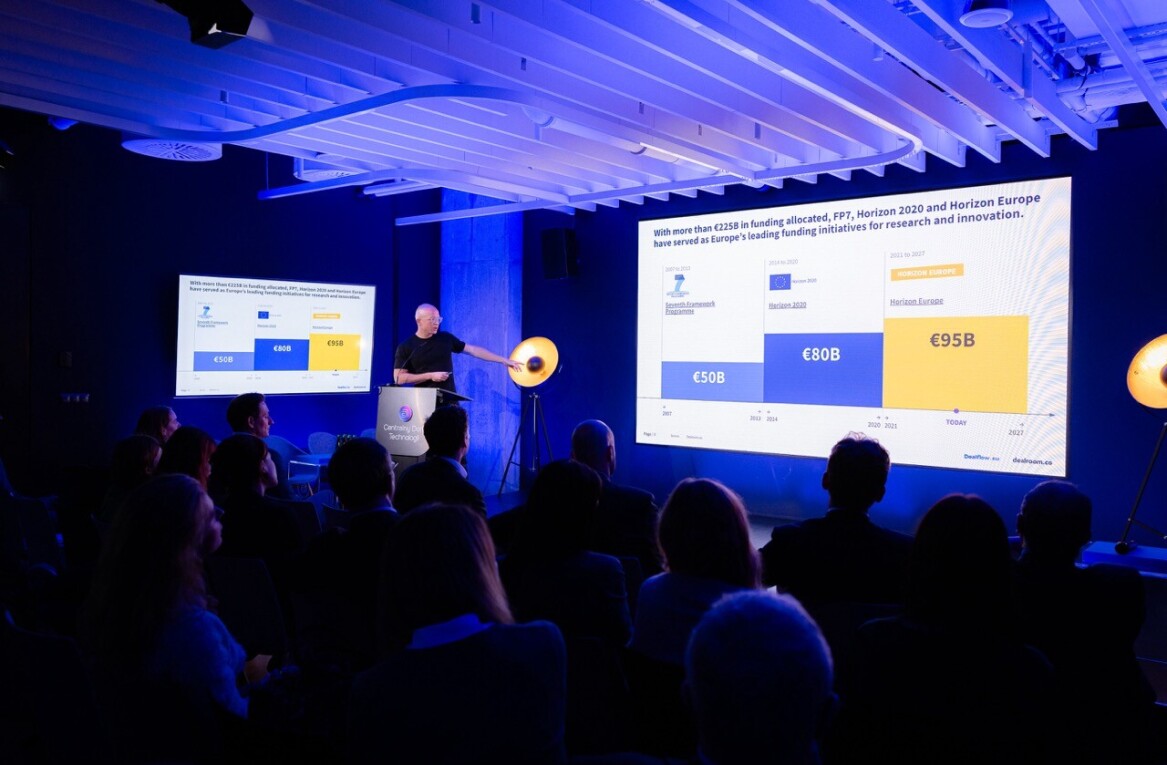
Tanguy Peers is the co-founder of Co.station, a Brussels and San Francisco-based post-accelerator which helps companies expand on both sides of the Atlantic through access to talent, expertise and capital.
There are a lot of blogs out there explaining to European startups how to move to the Valley (and how to move around in the Valley once they arrive).
There are fewer blogs about startups going the other way, which is understandable. A US startup expanding to Europe will already have a sizable business in the US, and it is often better funded. It has also proven that it can scale at breakneck speed.
But what you need to thrive in the juicy European market is not always speed. It’s also an understanding of how Europe is different.
1. Europe is actually 28 markets
First, while Europe is certainly a big and rich market, it’s is not a homogenous early adopter market like the US. This means that the triple digit growth you are used to won’t happen here.
There will be more friction in the beginning as you navigate the 28 submarkets of Europe, and it’s easy to get cold feet. All too often I see companies open European offices, hit some bumps in the road and decide to “close international.”
Rolling out and scaling back is an incredibly wasteful exercise, which is why you should make European expansion a priority for the CEO: to make sure that you stay the course even if/when you hit some turbulence.
2. London is not really Europe
Also, please don’t think that London is Europe, or even the United Kingdom as a nation. Yes, it’s more comfortable and familiar in London, but it will also give you a very wrong impression of the continent. Eventually, you will need a real presence on the mainland.
European business relies heavily on personal networks – a lot more than in the US. Start building your network today, because developing these relationships will take time, effort, and face time.
Also, don’t be too surprised if Europeans invite you to the opera.
3. Europeans think you should adapt to them, not the other way around
Europeans are culturally different from Americans. I’ve noticed that this comes as a shock to some Silicon Valley entrepreneurs, who often don’t have passports and have never travelled outside the US.
This is especially clear when it comes to subjects like privacy. You might think that the European way of looking at privacy is outdated or irrelevant, and that you will change by sticking to your guns. Sadly, you won’t.
Last year, a high ranking US diplomat threatened a trade war with Europe over the so called “right to be forgotten.” Not a week later, European Commissioner Viviane Redding told the Financial Times that:
“”[If] companies want to tap into the the European market, they have to apply European standards.”
That’s European for “bring it on.”
She obviously wasn’t bluffing: the EU Court of Justice handed down a ruling last month, which forces Google to remove results for searches on individuals. In the hours after the ruling went into effect, Google received more than 12,000 “right to be forgotten” requests.
For tech companies, this means that the European Commission has the power to regulate the rules of the internet on a global scale, and it isn’t afraid to use it.
4. Europeans think you should pay enough taxes (and they mean it)
I see a lot of US companies who optimize their taxes to the extreme with the so called “double Irish with a Dutch sandwich.” While this is a perfectly rational thing to do in the US, it offends Europeans.
Last year, Google chairman Eric Schmidt stepped on quite a few European toes when he insisted to Bloomberg that he was “very proud” of the tax schemes which allowed it to funnel a good deal of its profits to tax havens.
Shortly after the Schmidt interview, two high ranking French public servants proposed a tax on user generated content which aimed squarely at Facebook, Twitter and to a lesser extent Google.
This March, France sent Google a “tax assessment” – essentially, a bill for $ 1.5 billion in back taxes.
A few weeks ago, the European Commission piled on. It now wants to investigate whether some aggressive tax schemes constitute an illegal “state aid.” This is a novel and very aggressive strategy by the European Commission, which apparently decided that Europe will get its slice of the cake.
5. Don’t “ask for forgiveness” – ask for permission
Somewhat related, the Silicon Valley way of doing business is based on the idea that it’s better to ask for forgiveness than to ask for permission. In Europe, this strategy might cripple you.
Due to the fragmented markets, it might feel that you can get a way with a lot at first in Europe because your new audience might appear to be slow to catch on.
But once you awaken the sleeping dogs, you might find yourself quagmired and wondering why everybody, all of a sudden, is out to get you, not only on the European level, but also in the 28 individual markets.
Fighting a two-front war is hard. Try a 28-front war, in different legal systems in different languages, with some very powerful supranational institutions in the mix too. Take Google again: apart from the already mentioned privacy woes and the French tax case, the company recently settled an antitrust case with the EU over its search results.
Facebook, Twitter, Amazon and Apple are also feeling the heat in this EU “war” on what the German economy minister called “brutal information capitalism.”
Here’s how you can avoid getting mixed up in this war: understand that Europeans place a much higher premium on consensus than the US. This means that you might have to move slower initially.
When I was at eBay, the company eventually became very successful in Europe, partly because it learned how to navigate the EU, how to build bridges and work from an understanding of European culture.
A relative newcomer like Airbnb seems to have cracked this too: the city of Amsterdam recently created a new category of “private rentals,” which allows residents to rent their homes to guests for limited amounts of time.
If you want to become a big, global company somewhere down the line, it will matter how Europe perceives your corporate citizenship. Better start early.
Get the TNW newsletter
Get the most important tech news in your inbox each week.




